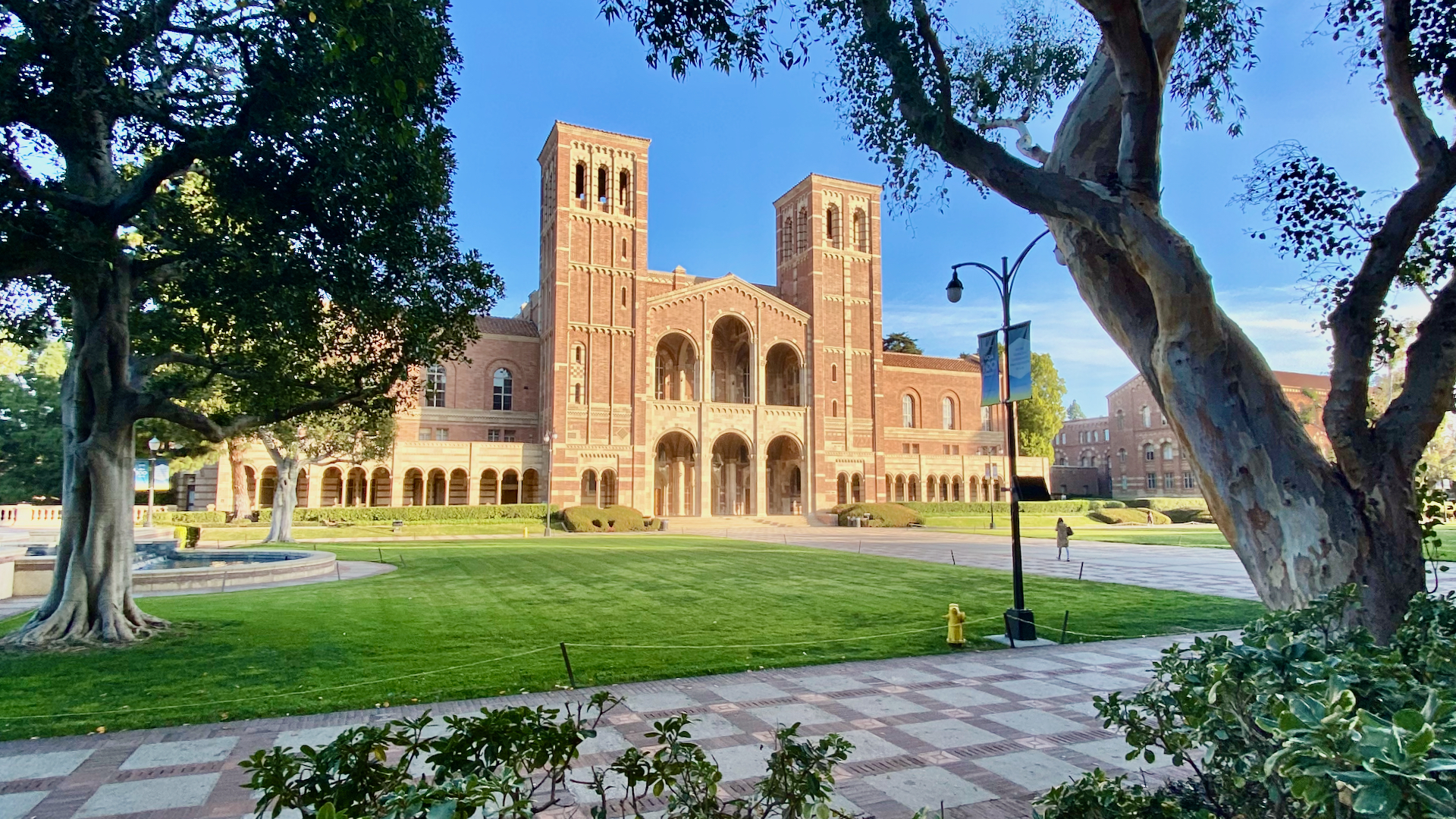
NEW: All the talks are recorded and they are available here on the Bhaumik Institute YouTube channel.
The conference is run in a hybrid mode. Anyone who is interested in attending the conference remotely, please contact the organizers via qcd50@googlegroups.com. Registration deadline is August 20, 2023 [Hotel reservation deadline is August 14, 2023].
The conference is held at UCLA, so the time corresponds to the local time in Los Angeles, i.e. US Pacific Time zone.
Quantum Chromodynamics (QCD) is one of the pillars of the Standard Model of particle physics. It describes the strong interaction - one of the four fundamental forces of nature. This force holds quarks and gluons - collectively known as partons - together in hadrons such as the proton, and protons and neutrons together in atomic nuclei. QCD was developed and defined over a brief period from 1972 - 73. One hallmark of QCD is asymptotic freedom, which states that the strong force between quarks and gluons decreases with increasing energy. The asymptotic freedom of strong interactions was discovered in 1973 by David Gross, Frank Wilczek, and David Politzer, who shared the Nobel Prize in physics in 2004. The year 2023 is the opportune time to celebrate 50 years of remarkable progress and achievements in the field of QCD and to provide guidance for the community effort for years to come.
To celebrate this, we are planning a five-day conference to be held at UCLA during September 11 - 15, 2023. This conference will provide a broad overview of the past and future of QCD, including its impact on and connection to other fields.
Organizing Committee
Michalis Bachtis (UCLA)
Aida El-Khadra (UIUC)
Zhongbo Kang (UCLA, Chair)
Igor Klebanov (Princeton)
George Sterman (Stony Brook)
Iain Stewart (MIT)
Local contact
Zvi Bern
Zhongbo Kang
Confirmed speakers (alphabetical order)
- Babis Anastasiou (ETH)
- Radja Boughezal (ANL)
- Stan Brodsky (SLAC)
- Mike Creutz (BNL)
- Sergei Dubovsky (NYU)
- Thomas Dumitrescu (UCLA)
- Keith Ellis (Durham)
- Aida El-Khadra (UIUC)
- Thomas Gehrmann (Zurich)
- David Gross (UCSB)
- Stefan Hoeche (Fermilab)
- Barbara Jacak (UCB/LBL)
- Robert Jaffe (MIT)
- Xiangdong Ji (Maryland)
- David Kaplan (UW Seattle)
- Marek Karliner (Tel Aviv)
- Igor Klebanov (Princeton)
- Zohar Komargodski (Stony Brook)
- Gregory Korchemsky (Saclay)
- David Kosower (Saclay)
- Ian Moult (Yale)
- Rob Pisarski (BNL)
- Jian-Wei Qiu (JLab)
- Helen Quinn (Stanford)
- Mikhail Shifman (Minnesota)
- Torbjorn Sjostrand (Lund)
- Dam T. Son (Chicago)
- George Sterman (Stony Brook)
- Iain Stewart (MIT)
- Leonard Susskind (Stanford)
- Arkady Vainshtein (Minnesota)
- Gabriele Veneziano (CERN/College de France)
- Raju Venugopalan (BNL)
- Xin-Nian Wang (LBL)
- Frank Wilczek (MIT)

